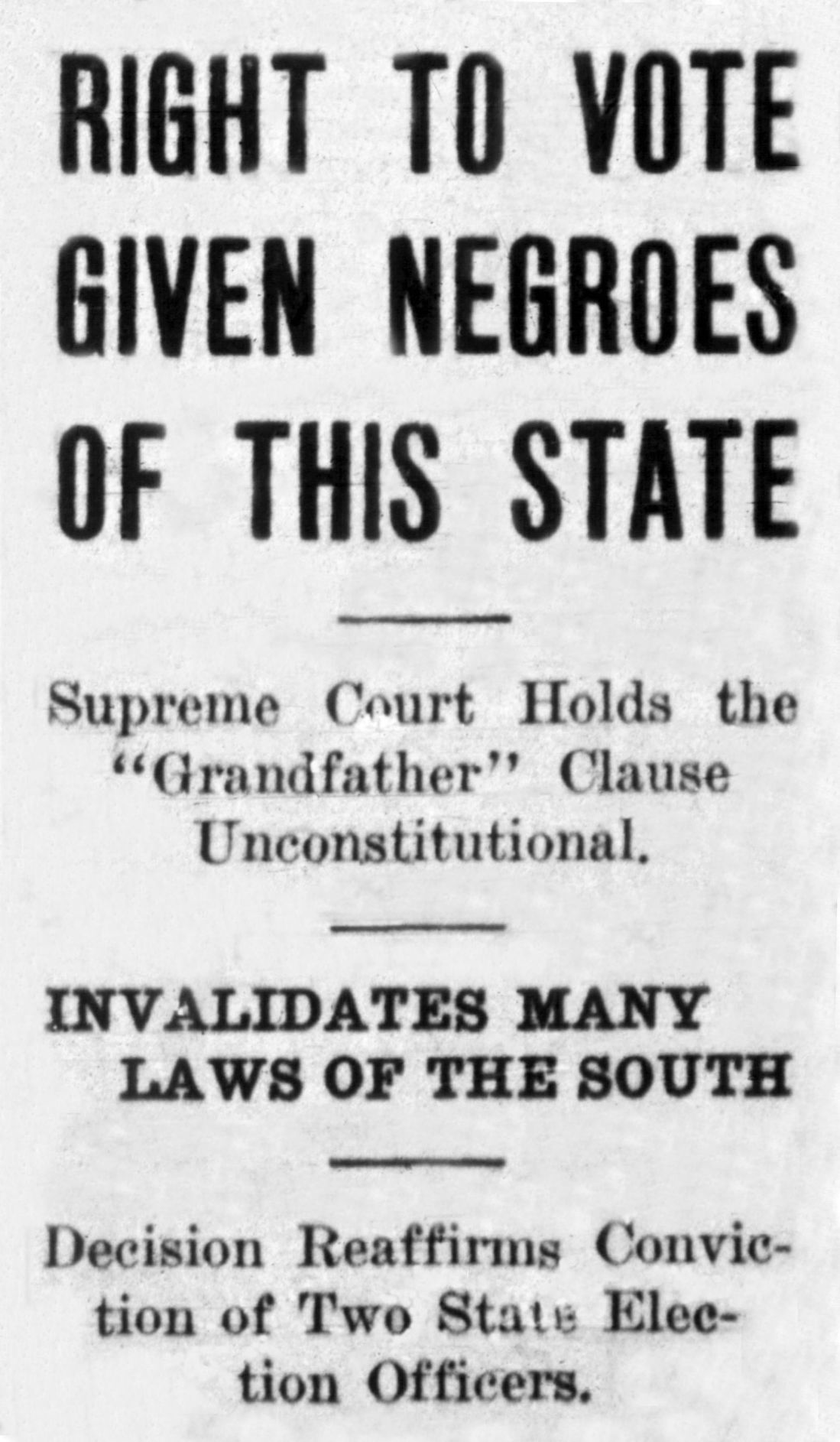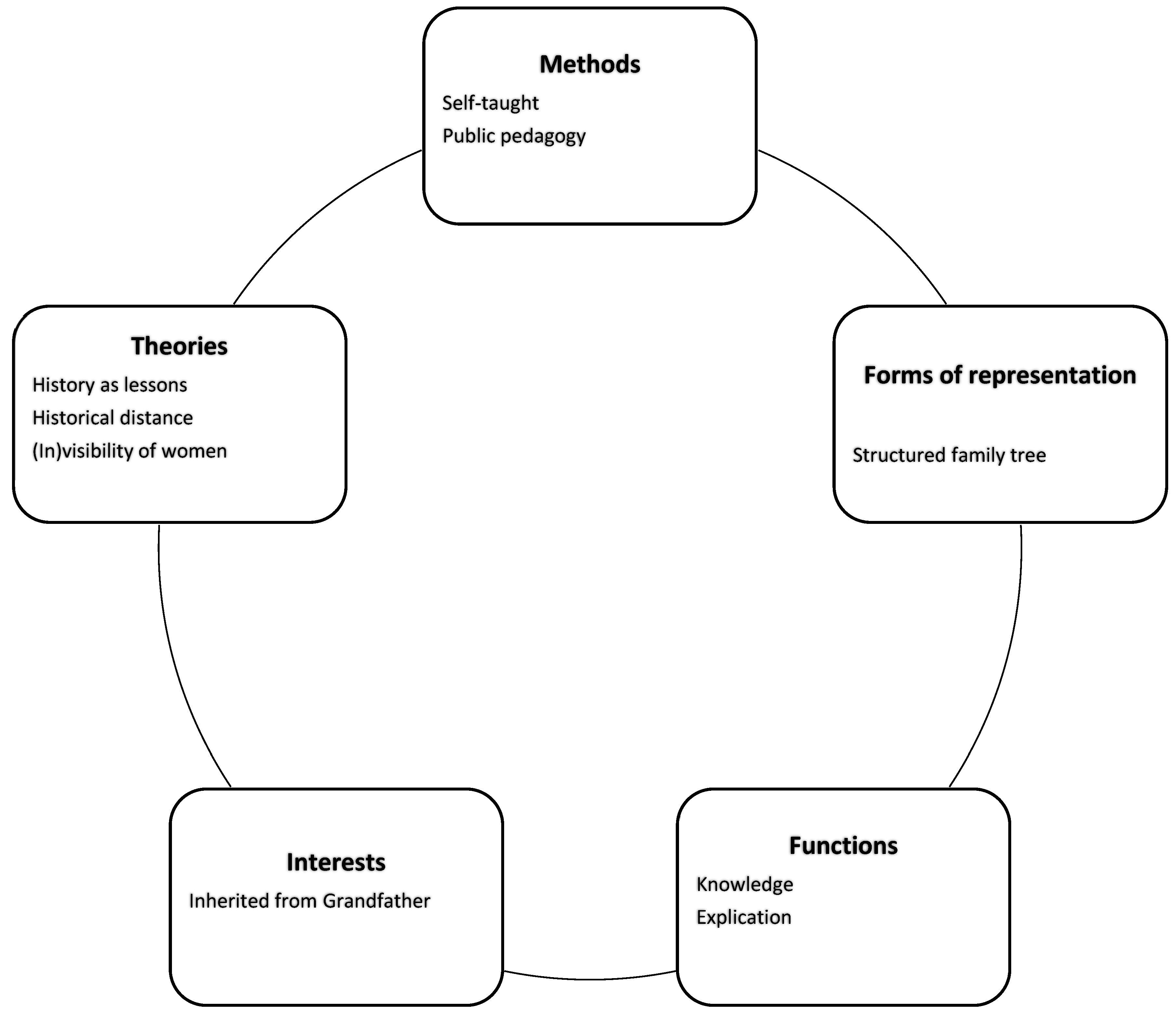

The lineal descendants of such exempted persons also were exempt from such a requirement. However, anyone who was entitled to vote on January 1, 1866, or any time earlier under any form of government, or who at that time lived in a foreign country, was exempt from satisfying the literacy test requirement. The 1910 constitutional amendment required that prospective voters pass a literacy test in order to qualify to vote. 1340, the Supreme Court of the United States examined a Grandfather Clause that was added to the Oklahoma constitution shortly following its admission to the Union. These statutes accomplished precisely what was intended, since nearly all slaves and their descendants were disqualified from voting because they could not satisfy the statutory requirements. Thus, in effect, if a person's grandfather could vote, he could vote without further restrictions. If the veterans were qualified to vote prior to 1866, their descendants were also qualified. The name grandfather clause arose from the exceptions that were made for veterans of the Civil War. For example, common requirements were ownership of a large amount of land or the ability to read and write portions of the state and federal constitutions. Such amendments sought to interfere with an individual's right to vote by setting forth difficult requirements.

Grandfather clauses, which were originally intended to prevent black people from voting, were named for provisions adopted by the constitutions of some states. A portion of a statute that provides that the law is not applicable in certain circumstances due to preexisting facts.


 0 kommentar(er)
0 kommentar(er)
